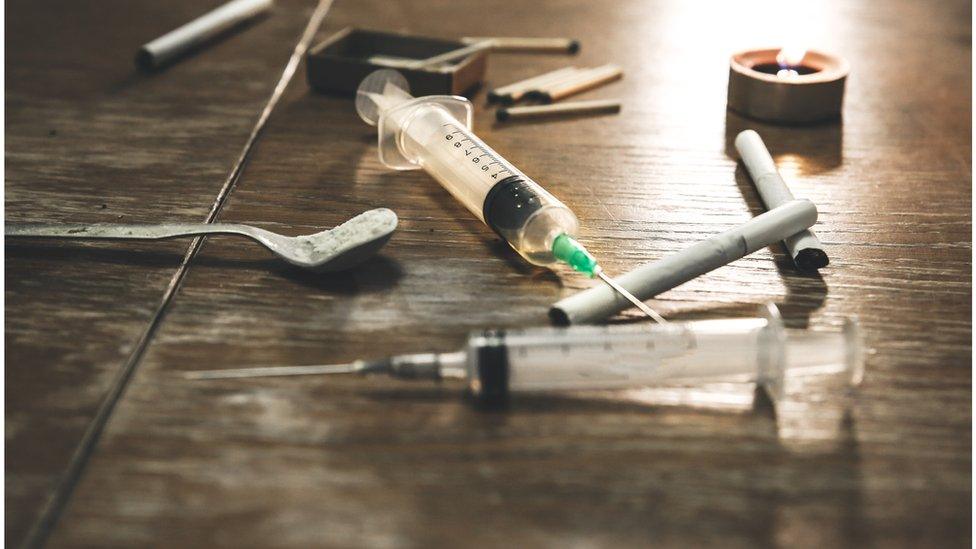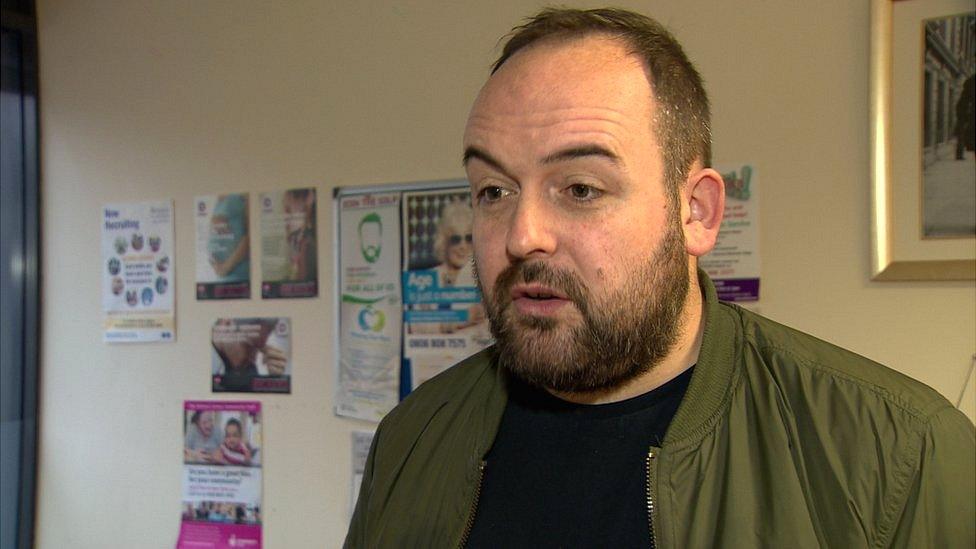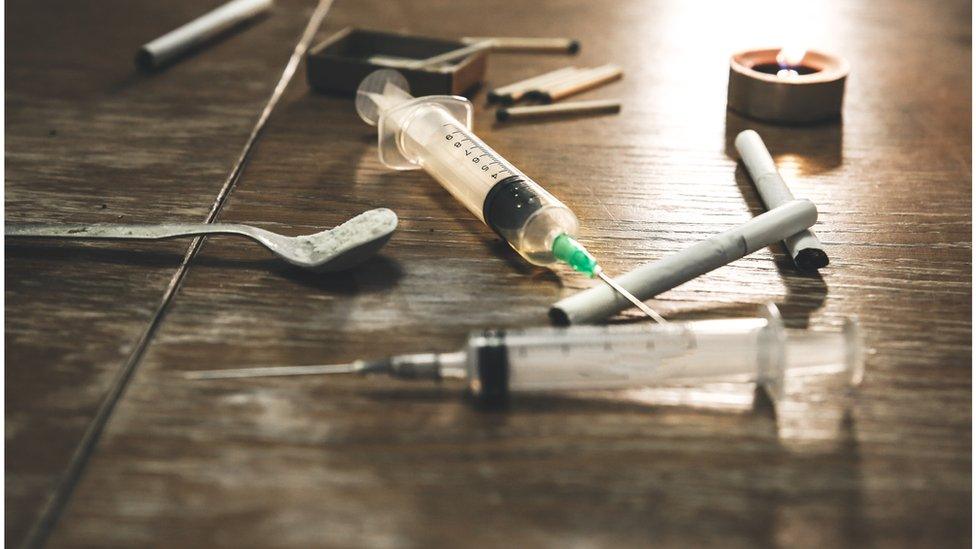Belfast needle and syringe exchange to close
- Published

Needle exchanges can be used by anyone who injects substances
A needle and syringe exchange scheme at a south Belfast pharmacy is to be withdrawn.
Protests had taken place outside the pharmacy on Botanic Avenue after claims the service was leading to anti-social behaviour in the area.
Organisers said the local community had been "blighted with issues arising from the needle exchange programme".
It is not clear whether the protests had any impact on the decision to close the needle exchange.
The service will be phased out by the end of August.
The schemes provide needles and syringes to users of intravenous drugs, such as heroin or steroids.
'Service has been critical'
The Public Health Agency said that those "who use and require the service will continue to have full access to needle exchange services".
It added that the needle and syringe exchange scheme is "vital to the health and wellbeing of the entire community and helps to reduce the potential of drug-related litter and lowers the risk of HIV and Hepatitis B and C within the wider population".
The service puts drug users in direct contact with a health professional who can help them engage with treatment services to address their drug misuse.
Protesters had urged public health services to rethink the locations of the exchanges.
However, Belfast's deputy lord mayor Paul McCusker criticised the recent protests and the south Belfast service's closure.

Belfast SDLP councillor Paul McCusker says the service is vital for drug users
"Removing services will achieve nothing," Mr McCusker told BBC News NI's Good Morning Ulster programme.
"Services like this ensures that we don't have increased needles on our streets. For 23 years, this service has been critical and shouldn't have had to close."
A total of 33,992 visits were made to exchange needles and syringes across Northern Ireland in the 21 exchange services operating during the period 1 April 2018 and 31 March 2019.
Out of these visits, 17,386 (51%) were made by residents of the Belfast Health and Social Care Trust area.
- Published16 July 2019

- Published25 February 2020
